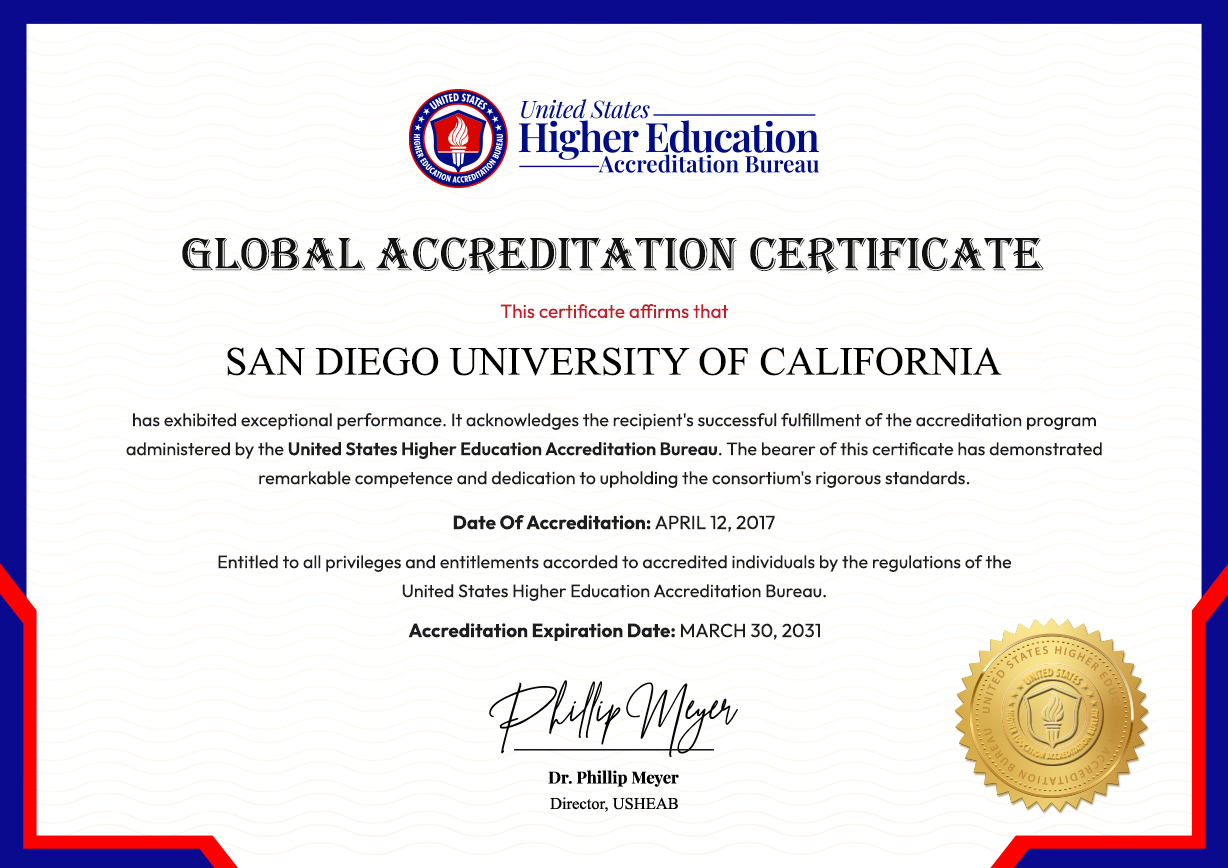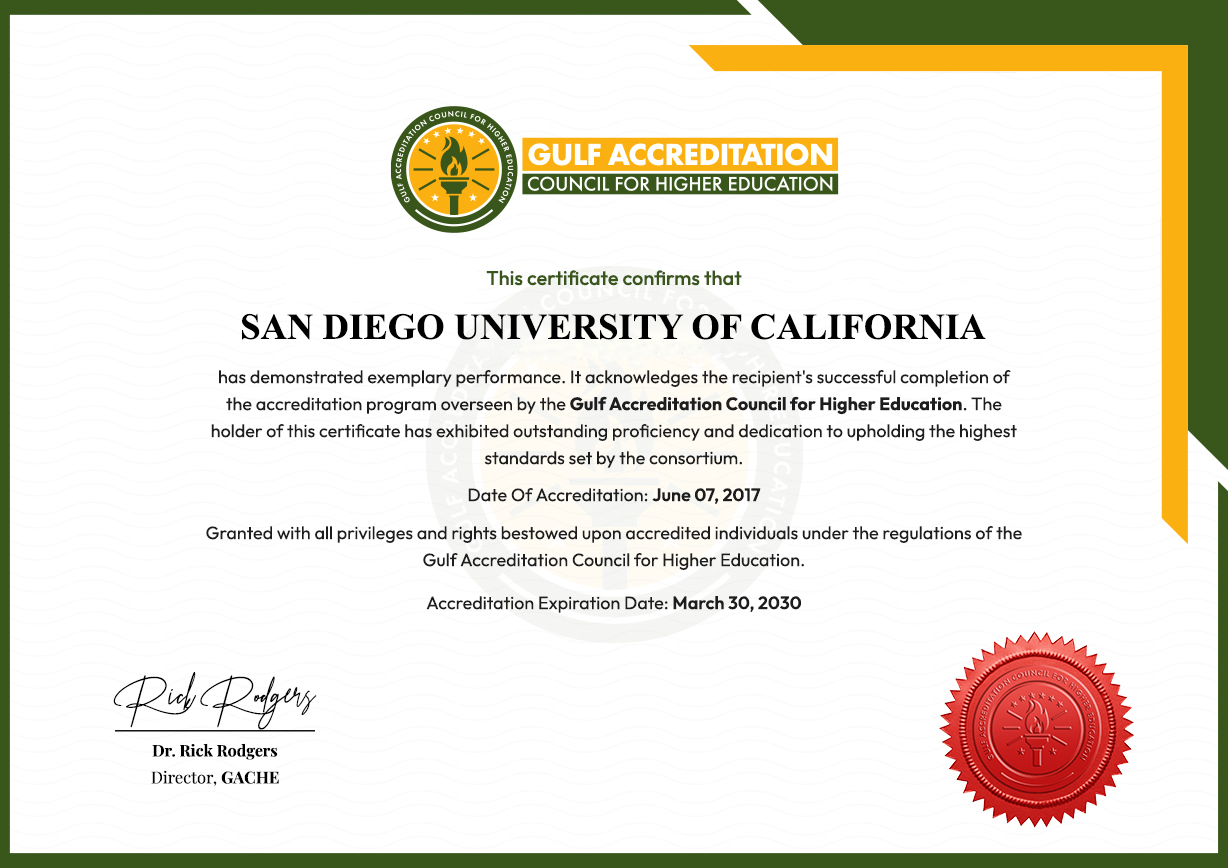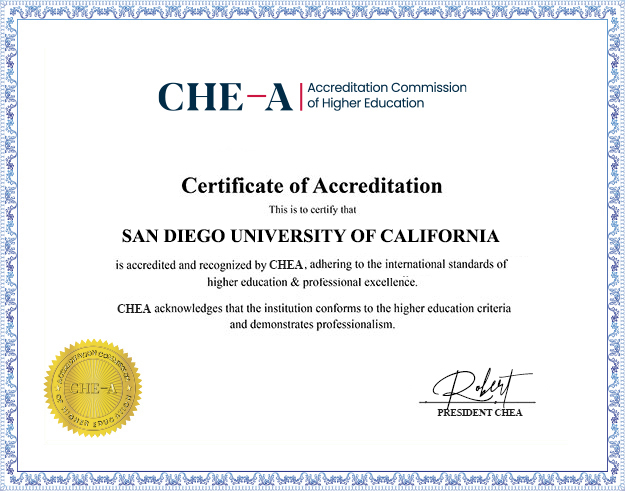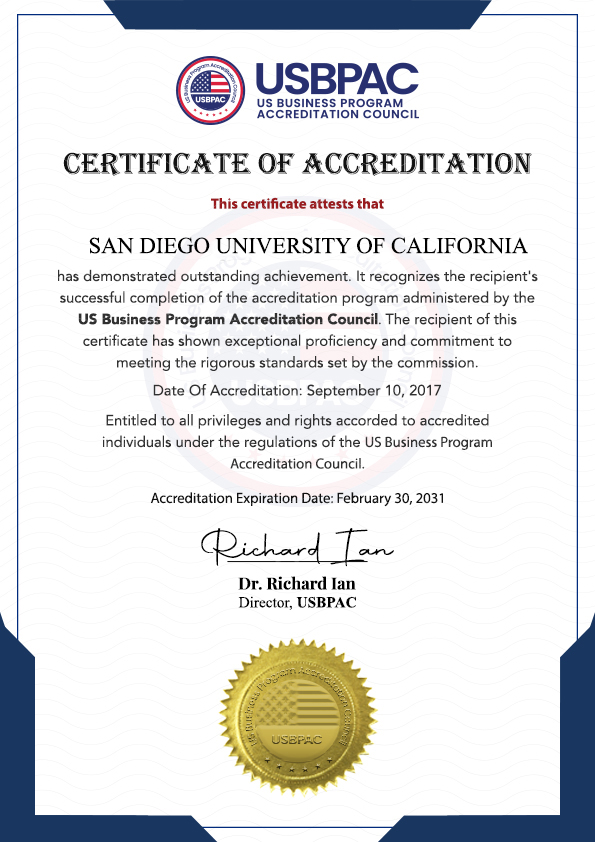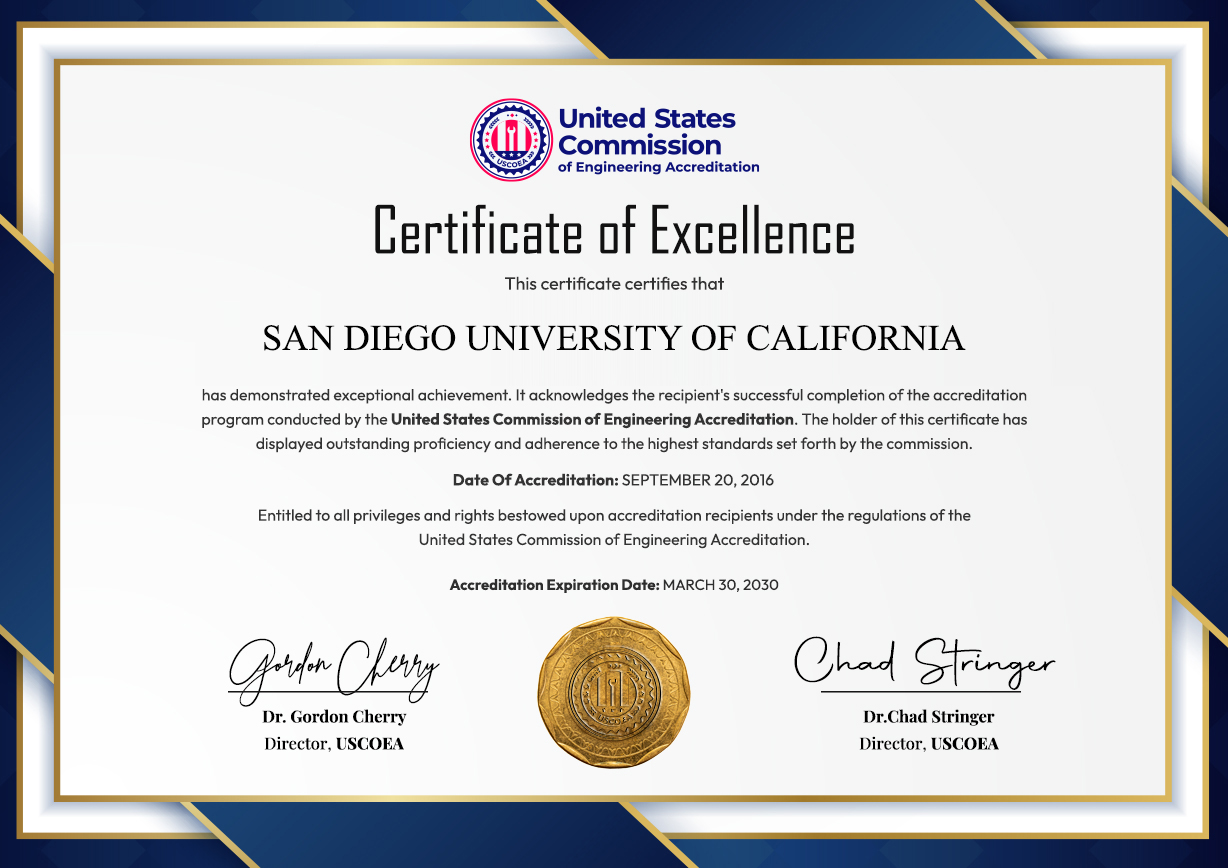Accreditation
Immerse Yourself in a Globally Recognized Accredited Learning Environment
Welcome!
Before we begin, could you please share your name with us?
Embark on Your Educational Journey with an Accredited University Meeting Global Standards
We foster an inspiring, innovative, and productive environment for students passionate about their educational and professional aspirations.
Understanding Regional and National Accreditation
Most public and private universities offering diverse programs hold regional accreditation, which involves a rigorous peer review by faculty and administrators from similar institutions.
National accreditation, on the other hand, is typically granted by agencies focused on specific disciplines or vocational education. While large public universities often have regional accreditation, they may also have nationally accredited programs. San Diego University of California proudly holds both regional and national accreditation.
Accreditation Bodies
Apostille is a professional certificate issued by the Secretary of State. This document is attached to confirm the legality and authenticity of other educational documents, in order for all the member states of the Hague Apostille Convention to recognize and accept it. A total of 117 countries are part of the The Hague Apostille Convention and each one requires an Apostille by the Secretary of State of the Department of Higher Education of the United States.
We also provide Document certification, legalization of the embassy or consulate as required to maintain the standardization of distance education and quality assurance for all students enrolled in the United States or international students enrolled in universities located in the United States through accredited US educational institutes.
United States Higher Education Accreditation Bureau
USHEAB is a distinguished American accreditation certifying institute that grants degrees for secondary programs spanning law, nursing, engineering, business management, criminal law, social services, applied arts, sciences, and other disciplines.
Gulf Accreditation Council for Higher Education
The Gulf Accreditation Council for Higher Education oversees, certifies, and supports higher education in the Middle East, ensuring excellence and effectiveness through regulations and assistance to universities.
Accreditation Commission of Higher Education
CHE-A is a voluntary, non-governmental membership organization that defines, maintains, and promotes educational quality among institutions with varying missions, student populations, and resources.DSD
US Business Program Accreditation Council
The formation of the US Business Program Accreditation Council (USBPAC) stemmed from the demands of university leaders seeking an accreditation process focused on mission-driven outcomes rather than rigid input-based standards.
United States Commission Of Engineering Accreditation
The USCOEA stands as a beacon of excellence within the American academic landscape, dedicated to bestowing accreditation upon educational institutions spanning from schools to universities across the United States.
Along with regional and national accreditation, San Diego University of California also maintains specialized accreditation for its programs as appropriate to educational purposes and has more than 100 degrees/majors that have specialized accreditation. These programs benefit from the rigorous program review requirements in the accreditation process which are based on national standardized outcomes. San Diego University of California has attained membership of the following bodies:
- American Council on Education
- American Association for Higher Education
- American Library Association
- Association of Psychology Postdoctoral and Internship Centers
- Interamerican Society of Psychology
- National Council of Schools and Programs of Professional Psychology
- Council for the Accreditation of Educator Preparation
- Accreditation Council for Business Schools and Programs
- The Council for Accreditation of Counseling and Related Educational Programs
- The Engineering Accreditation Commission
